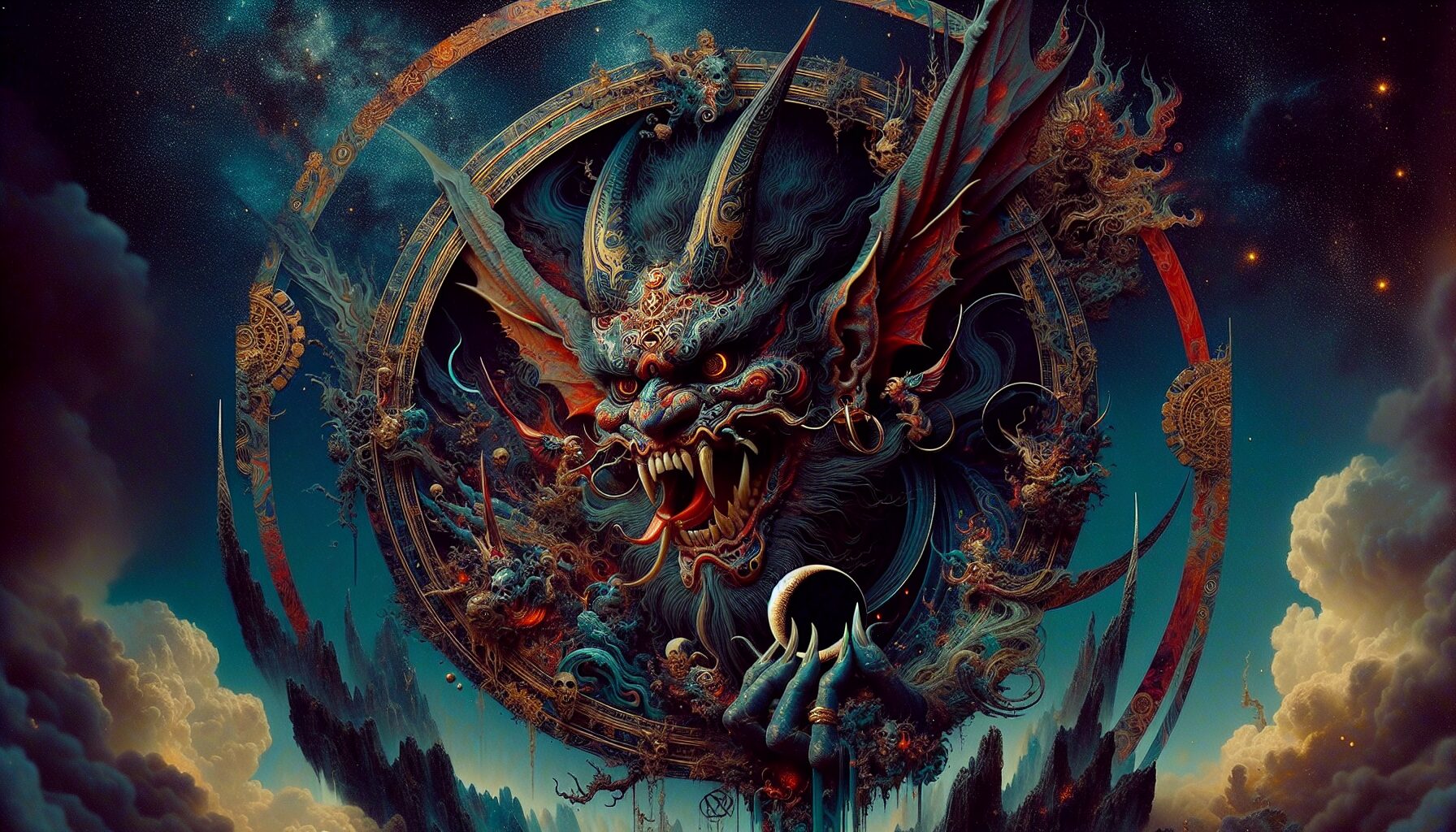Throughout history, demons have held a potent place in the myths and stories of cultures worldwide. These infernal entities embody fear, temptation, and the unknown, acting both as figures of evil and as reflections of the human psyche. From the terrifying Asuras of Hindu mythology to the cunning tempters of Judeo-Christian lore, demons represent complex archetypes that bridge the supernatural and the psychological.
Demons in Cultural Myths
The presence of demons in mythology is pervasive and diverse. In Japanese folk traditions, Oni are malevolent spirits, often depicted as gigantic, ogre-like creatures wielding iron clubs. These figures are feared for their capacity to disrupt order and bring calamity.
In contrast, Middle Eastern tales feature the notorious Djinn, which are considered spirits capable of good or evil. These beings, as noted in Islamic culture, can shape-shift, alter reality, and influence human fates, creating narratives that challenge our understanding of free will and destiny.
Demons and the Human Psyche
Psychologically, demons can be seen as manifestations of the darker elements of the human mind. Renowned psychoanalyst Carl Jung discussed the concept of the “shadow,” which represents the suppressed aspects of personality. Jungian theory suggests that encountering our inner demons is a necessary part of personal growth and self-discovery.
“One does not become enlightened by imagining figures of light, but by making the darkness conscious.”
This quote, attributed to Jung, highlights the importance of integrating these shadowy parts into conscious awareness, thereby reducing their potential to control and manipulate behavior unknowingly.
Modern Interpretations and Significance
In contemporary culture, demons continue to captivate and terrify, from horror films to literature. They often symbolize internal struggles such as guilt, addiction, and fear. By externalizing these internal demons, modern narratives provide a platform for audiences to confront and question their own fears and anxieties.
Thus, demons remain a vital part of both collective myths and individual psychology. They are reminders of the innate balance between light and shadow, good and evil, in the vast tapestry of human experience. The study of these archetypes offers valuable insights into the consciousness, encouraging a journey into the depths of the mind where these infernal entities reside.
In exploring demons as archetypes of myth and psyche, we can better understand the roles they play in our stories and in our lives—a dance of darkness and light, always compelling, always relevant.

Comments